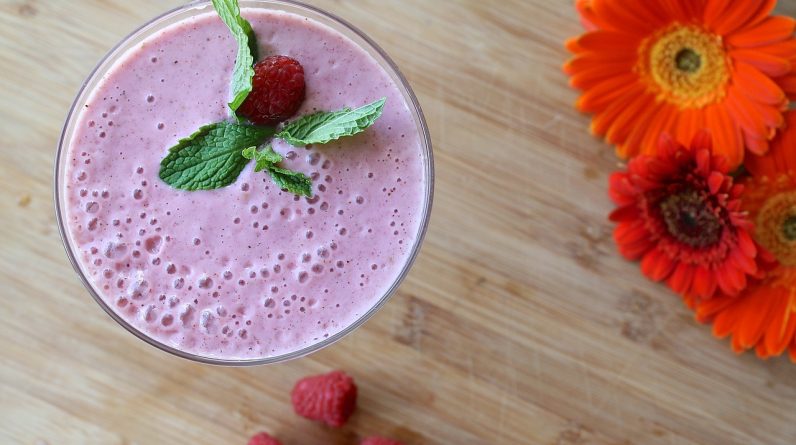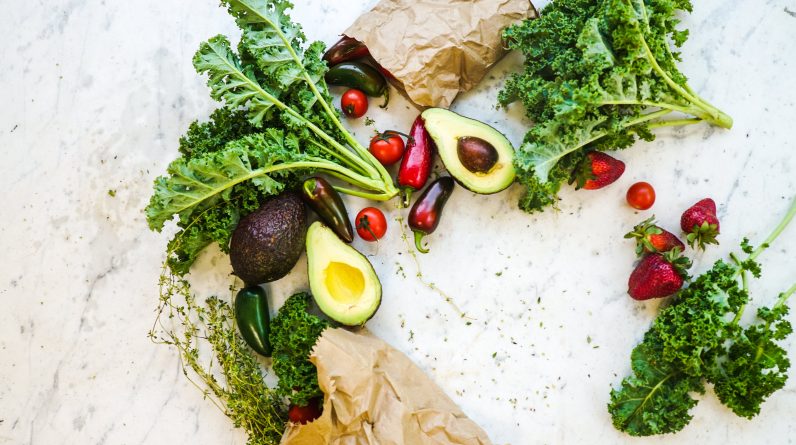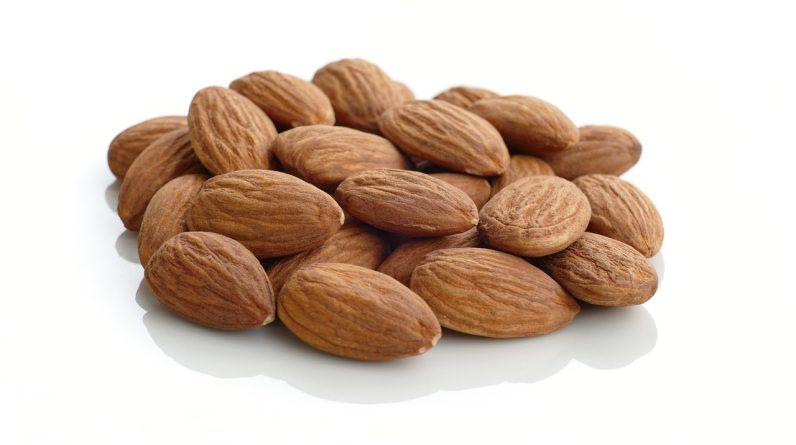
Lend an ear, my friend, because today we’re about to uncover a treasure trove of superfoods that can work wonders in the fight against cirrhosis of the liver. Picture this: a world filled with delicious and nutritious edibles that not only tantalize your taste buds but also provide powerful support to your liver’s health. So put on your detective hat, because we’re about to embark on a journey to discover the top superfoods that can lend a helping hand in combating this common liver ailment.
Overview of Cirrhosis of the Liver
Cirrhosis of the liver is a serious condition that occurs when there is irreversible scarring of the liver. This scarring prevents the liver from functioning properly and can lead to a variety of complications. It is often caused by chronic liver diseases, such as hepatitis or alcoholism, but can also be the result of certain medications or genetic disorders.
Causes and Risk Factors
The main causes of cirrhosis of the liver include long-term alcohol abuse, chronic hepatitis B or C, and non-alcoholic fatty liver disease. Other potential causes include autoimmune diseases, genetic disorders, and certain medications or toxins. It’s important to note that not everyone who has these risk factors will develop cirrhosis, but they do increase the likelihood.
Symptoms of Cirrhosis of the Liver
In its early stages, cirrhosis of the liver may not cause any symptoms. However, as the condition progresses, the following symptoms may occur: fatigue, loss of appetite, jaundice, bruising easily, itching, swelling in the legs and abdomen, and confusion or difficulty concentrating. If you are experiencing any of these symptoms, it’s important to see a healthcare professional for a proper diagnosis.
Complications of Cirrhosis of the Liver
Cirrhosis of the liver can lead to a number of serious complications. These can include portal hypertension, which is high blood pressure in the veins that carry blood from the digestive organs to the liver; liver cancer; kidney problems; and an increased risk of infections. Additionally, as the liver loses its ability to function properly, toxins can build up in the body, leading to hepatic encephalopathy, a condition that affects brain function.
Current Treatment Options
Treatment for cirrhosis of the liver focuses on managing the underlying cause, preventing further scarring, and managing symptoms. This may involve lifestyle changes, such as stopping alcohol consumption, managing hepatitis infections, or losing weight. Medications may also be prescribed to help manage symptoms and slow the progression of the disease. In severe cases, a liver transplant may be necessary.
Understanding Superfoods
Superfoods are nutrient-dense foods that are rich in vitamins, minerals, and antioxidants. They have gained popularity due to their potential health benefits, including boosting the immune system, reducing inflammation, and improving overall well-being. When it comes to liver health, certain superfoods have been found to be particularly beneficial in supporting liver function and preventing or managing cirrhosis.
Definition of Superfoods
Superfoods are not an exclusive category defined by a specific set of criteria. Rather, the term “superfood” is used to describe foods that are considered to be exceptionally nutrient-rich and beneficial for health. These foods are typically high in antioxidants, vitamins, minerals, and other beneficial compounds that contribute to optimal health and well-being. Some examples of superfoods include berries, leafy greens, nuts and seeds, fatty fish, and certain herbs and spices.
Benefits of Superfoods
Superfoods offer numerous benefits when it comes to liver health. They contain a wide variety of nutrients that support liver function and detoxification processes. Many superfoods are rich in antioxidants, which help combat oxidative stress and inflammation in the liver. They also provide essential nutrients that are necessary for the production of enzymes and proteins involved in detoxification and the repair of liver cells.
Superfoods for Liver Health
While there are many superfoods that can benefit liver health, some stand out for their specific properties and effects on the liver. Below, we will explore several superfoods that have been found to be particularly beneficial for combating cirrhosis of the liver.
1. Garlic

Garlic is a culinary ingredient that has long been recognized for its health benefits. It contains a compound called allicin, which has been shown to have anti-inflammatory and antioxidant properties. These properties can help reduce inflammation in the liver and protect against oxidative damage. In addition, garlic has been found to have antimicrobial properties that may help prevent infections in individuals with cirrhosis.
Properties of Garlic
Garlic is a member of the allium family, which also includes onions, leeks, and shallots. It is known for its distinct aroma and flavor, which is due to sulfur-based compounds. These compounds are responsible for many of garlic’s health benefits. Garlic also contains vitamins, minerals, and other bioactive compounds that contribute to its medicinal properties.
Benefits of Garlic for Liver Health
Garlic has been found to have several benefits for liver health. Studies have shown that garlic can help reduce liver damage caused by toxins, oxidative stress, and inflammation. It has also been found to improve liver function and reduce the risk of liver cancer. Additionally, garlic can help regulate cholesterol levels, which is important for individuals with liver disease.
How to Incorporate Garlic into Your Diet
Garlic can be easily incorporated into your diet in a variety of ways. It can be used to add flavor to dishes, such as soups, stews, and stir-fries. Fresh garlic can be crushed and added to salad dressings or marinades. Garlic powder or garlic oil can also be used as seasoning. For maximum health benefits, it is recommended to consume garlic raw or lightly cooked, as some of its beneficial compounds may be lost during prolonged cooking.
2. Turmeric
Turmeric is a vibrant yellow spice that is commonly used in Indian and Asian cuisine. It contains a compound called curcumin, which has been shown to have potent antioxidant and anti-inflammatory properties. These properties make turmeric an excellent superfood for liver health, as inflammation and oxidative stress are key contributors to the development and progression of cirrhosis.
Properties of Turmeric
Turmeric is derived from the root of the Curcuma longa plant and is known for its distinct earthy flavor. It has been used in traditional medicine for centuries due to its medicinal properties. Turmeric contains several bioactive compounds, including curcumin, which gives it its vibrant color and numerous health benefits.
Benefits of Turmeric for Liver Health
The curcumin present in turmeric has been shown to have numerous benefits for liver health. It can help reduce liver inflammation, protect against oxidative damage, and promote the regeneration of liver cells. Curcumin has also been found to inhibit the growth of liver cancer cells and prevent the formation of liver fibrosis, a common complication of cirrhosis.
Ways to Add Turmeric to Your Diet
Turmeric can be easily incorporated into your diet in various ways. It can be used as a spice in cooking, adding a golden color and subtle flavor to dishes. Turmeric powder can be mixed with warm milk or added to smoothies for a healthy and flavorful beverage. Curcumin supplements are also available, but it is important to consult with a healthcare professional before starting any new supplement regimen.
3. Beetroot
Beetroot, or beets, are root vegetables known for their deep red color and sweet taste. They are packed with essential nutrients and offer various health benefits, including supporting liver health. Beetroot contains betalains, which are natural pigments that have been found to have antioxidant and anti-inflammatory properties.
Properties of Beetroot
Beetroot, scientifically known as Beta vulgaris, is known for its vibrant color and earthy flavor. It is a good source of fiber, folate, manganese, and vitamin C. It also contains nitrates, which have been found to have beneficial effects on cardiovascular health.
Benefits of Beetroot for Liver Health
Beetroot has several benefits for liver health. The betalains in beetroot have been shown to have antioxidant and anti-inflammatory effects, which can help reduce liver damage caused by oxidative stress and inflammation. Beetroot can also help improve liver detoxification processes by supporting the production of enzymes involved in detoxification. Additionally, the nitrates in beetroot may help improve blood flow to the liver, promoting optimal liver function.
Incorporating Beetroot into Your Diet
Beetroot can be enjoyed in a variety of ways. It can be eaten raw, roasted, boiled, or blended into soups and smoothies. Beetroot can also be pickled or used to make beetroot juice. Its sweet and earthy flavor pairs well with other ingredients, such as goat cheese, walnuts, and balsamic vinegar. Additionally, beetroot leaves, also known as beet greens, are edible and can be cooked or used in salads.
4. Green Tea
Green tea is a popular beverage that has been consumed for centuries due to its many health benefits. It is made from the leaves of the Camellia sinensis plant and is known for its high content of polyphenols, particularly catechins. These compounds have been found to have antioxidant and anti-inflammatory properties.
Properties of Green Tea
Green tea contains various bioactive compounds, including polyphenols, flavonoids, and catechins. The most abundant catechin in green tea is epigallocatechin gallate (EGCG), known for its potent antioxidant effects. Green tea also contains caffeine, which can provide a gentle boost in energy.
Benefits of Green Tea for Liver Health
Green tea has several benefits for liver health. The catechins in green tea have been shown to help reduce liver inflammation and protect against liver damage caused by oxidative stress. Green tea can also help improve liver function and promote the excretion of toxins. Additionally, green tea has been found to have anti-cancer properties, reducing the risk of liver cancer, which is a common complication of cirrhosis.
Tips for Consuming Green Tea
To reap the benefits of green tea for liver health, it is recommended to drink 2-3 cups of green tea per day. Green tea can be consumed hot or cold, depending on personal preference. Avoid adding excessive amounts of sugar or milk, as this can negate some of the health benefits. Green tea supplements are also available, but it is important to choose reputable brands and consult with a healthcare professional before starting any new supplement regimen.
5. Spinach
Spinach is a leafy green vegetable known for its nutritional value and versatility in cooking. It is rich in vitamins, minerals, and antioxidants, making it an excellent superfood for liver health. Spinach is also low in calories and carbohydrates, making it a great choice for those looking to maintain a healthy weight or manage blood sugar levels.
Properties of Spinach
Spinach belongs to the Amaranthaceae family and is rich in essential nutrients, including vitamin K, vitamin C, folate, iron, and calcium. It also contains various bioactive compounds, such as lutein and zeaxanthin, which have been found to have antioxidant and anti-inflammatory properties.
Benefits of Spinach for Liver Health
Spinach offers numerous benefits for liver health. Its high content of vitamins and minerals supports optimal liver function and detoxification processes. The antioxidants present in spinach help reduce oxidative stress in the liver and protect against liver damage. Spinach also contains chlorophyll, which has been found to have liver-protective properties. Additionally, the fiber in spinach can help promote healthy digestion and prevent the accumulation of fats in the liver.
Including Spinach in Your Meals
Spinach can be easily incorporated into your meals in a variety of ways. It can be eaten raw in salads, added to stir-fries and omelets, or wilted and used as a topping for pizzas and sandwiches. Spinach can also be blended into smoothies or cooked into soups and stews. To retain the maximum amount of nutrients, it is best to lightly steam or cook spinach for a short period of time.
6. Berries
Berries are delicious and nutritious fruits that are packed with vitamins, minerals, and antioxidants. They come in various colors and flavors, including strawberries, blueberries, raspberries, and blackberries. Berries are known for their high content of anthocyanins, which are potent antioxidants that contribute to their vibrant colors.
Properties of Berries
Berries are a rich source of vitamins, minerals, and dietary fiber. They contain a variety of antioxidants, including anthocyanins, which have been found to have anti-inflammatory and antioxidant properties. Berries also offer a good source of natural sugars, making them a healthy and satisfying option for those with a sweet tooth.
Benefits of Berries for Liver Health
Berries provide several benefits for liver health. The antioxidants present in berries help neutralize free radicals and reduce oxidative stress in the liver. This can help protect against liver damage and inflammation. The high fiber content in berries also supports healthy digestion and helps regulate blood sugar levels, which is important for individuals with liver disease. Additionally, berries have been found to have anti-cancer effects, reducing the risk of liver cancer.
Incorporating Berries into Your Diet
Berries can be enjoyed in various ways, making them a versatile superfood to incorporate into your diet. They can be eaten fresh as a snack, added to smoothies, cereal, or yogurt, or used to make jams and sauces. Frozen berries are also a convenient option and can be easily added to recipes or thawed for a delicious treat. Aim to include a variety of berries in your diet to reap the maximum benefits.
7. Fatty Fish
Fatty fish, such as salmon, mackerel, and sardines, are rich in omega-3 fatty acids, which are essential fats that offer numerous health benefits. Omega-3 fatty acids have been found to have anti-inflammatory properties and can help reduce inflammation in the liver.
Properties of Fatty Fish
Fatty fish are a great source of protein, vitamins, and minerals. They are also rich in omega-3 fatty acids, particularly eicosapentaenoic acid (EPA) and docosahexaenoic acid (DHA). These types of omega-3 fatty acids are highly bioavailable and have been associated with numerous health benefits.
Benefits of Fatty Fish for Liver Health
The omega-3 fatty acids found in fatty fish have several benefits for liver health. They help reduce inflammation in the liver and protect against liver damage caused by oxidative stress. Omega-3 fatty acids also support healthy cell function and promote the production of anti-inflammatory compounds in the body. Additionally, fatty fish can help regulate blood lipid levels, which is important for individuals with liver disease.
Incorporating Fatty Fish into Your Diet
To incorporate fatty fish into your diet, aim to consume at least two servings per week. Fatty fish can be grilled, baked, or steamed and served with a variety of healthy accompaniments, such as vegetables or whole grains. Canned or smoked fish can also be used in salads or sandwiches. If you are not a fan of the taste or texture of fish, fish oil supplements are available. However, it is important to choose high-quality supplements and consult with a healthcare professional before starting any new supplement regimen.
Conclusion
Superfoods have the power to support liver health and play a role in preventing or managing cirrhosis of the liver. Garlic, turmeric, beetroot, green tea, spinach, berries, and fatty fish are just a few examples of superfoods that offer a wide range of nutrients and health benefits. By incorporating these superfoods into your diet on a regular basis, you can provide your liver with the essential nutrients it needs to function optimally and reduce the risk of liver damage. Remember to consult with a healthcare professional before making any major changes to your diet or starting any new supplement regimen.






